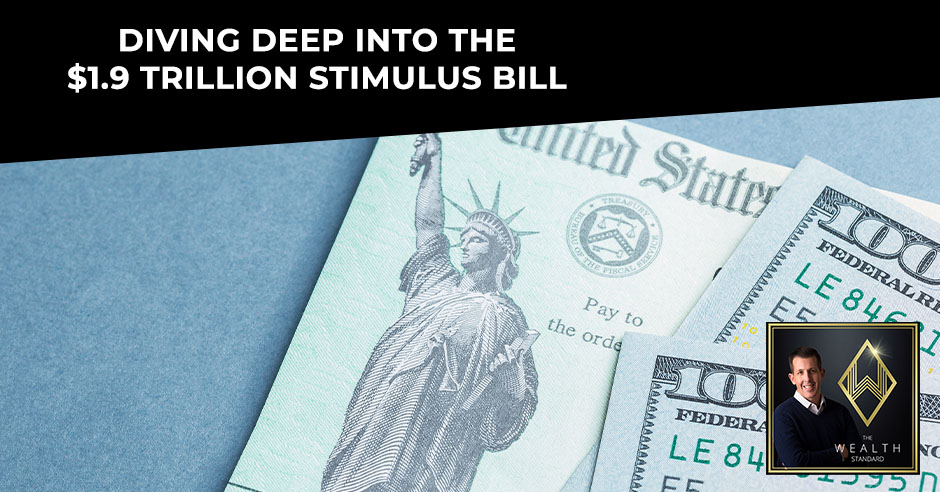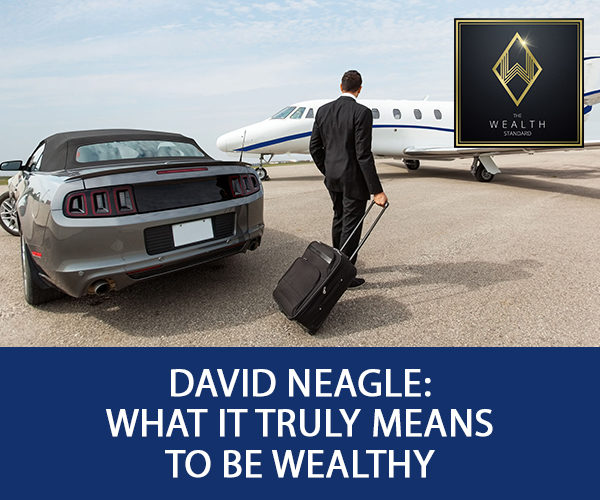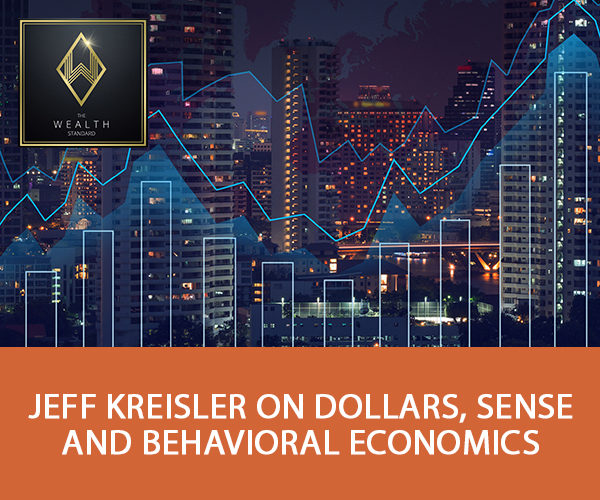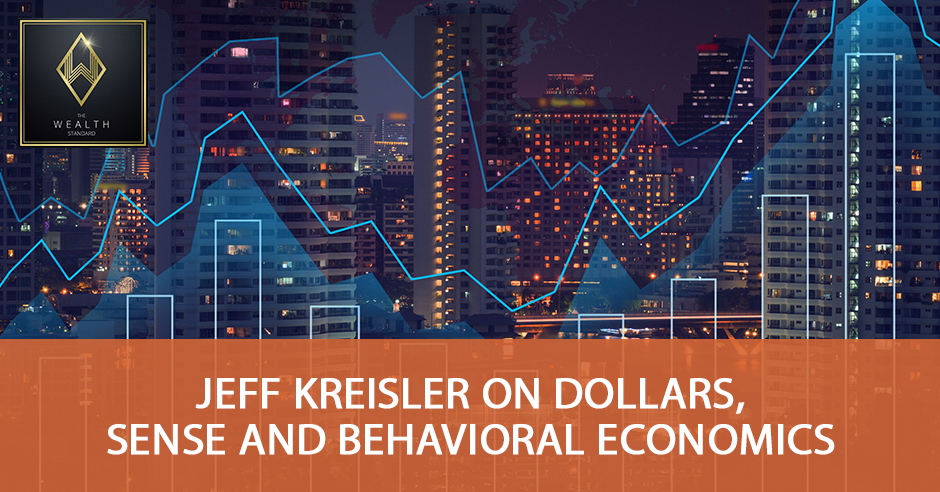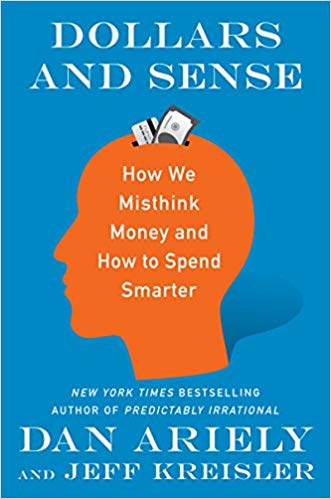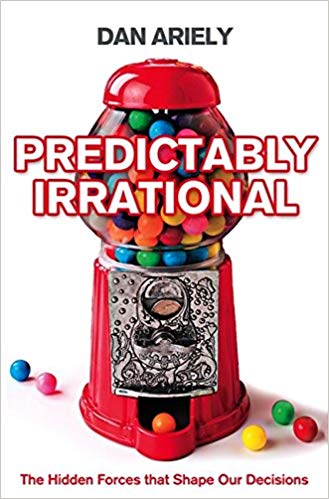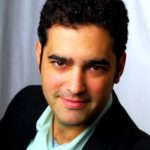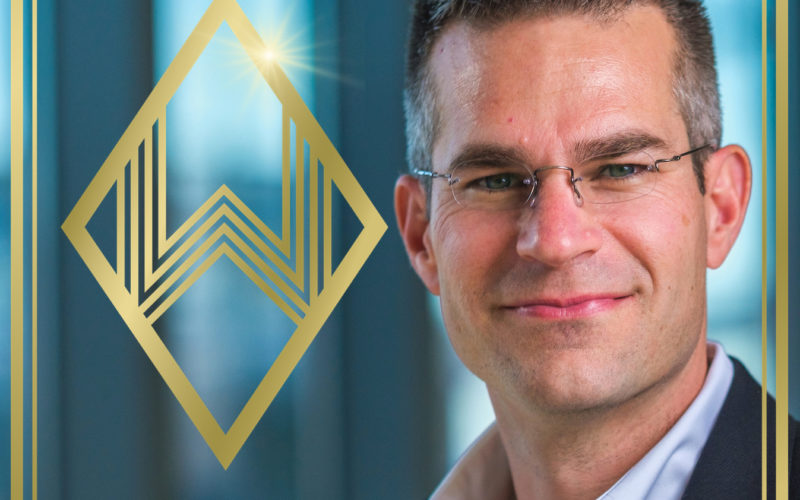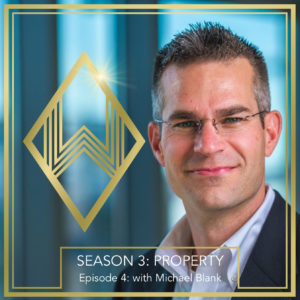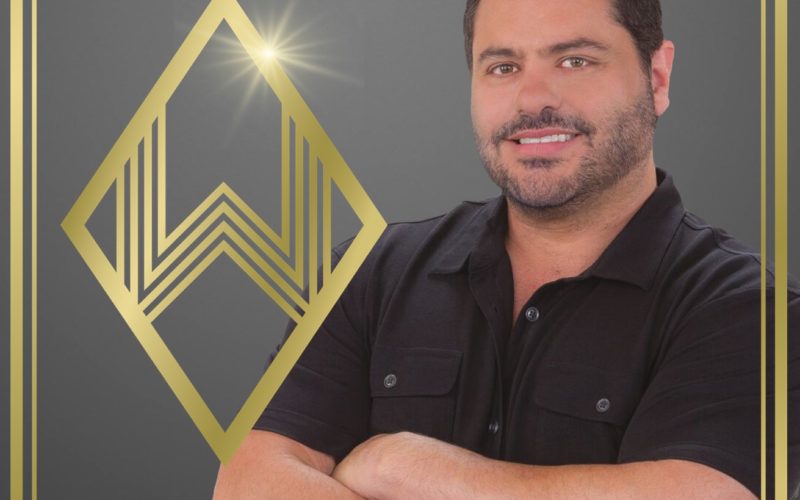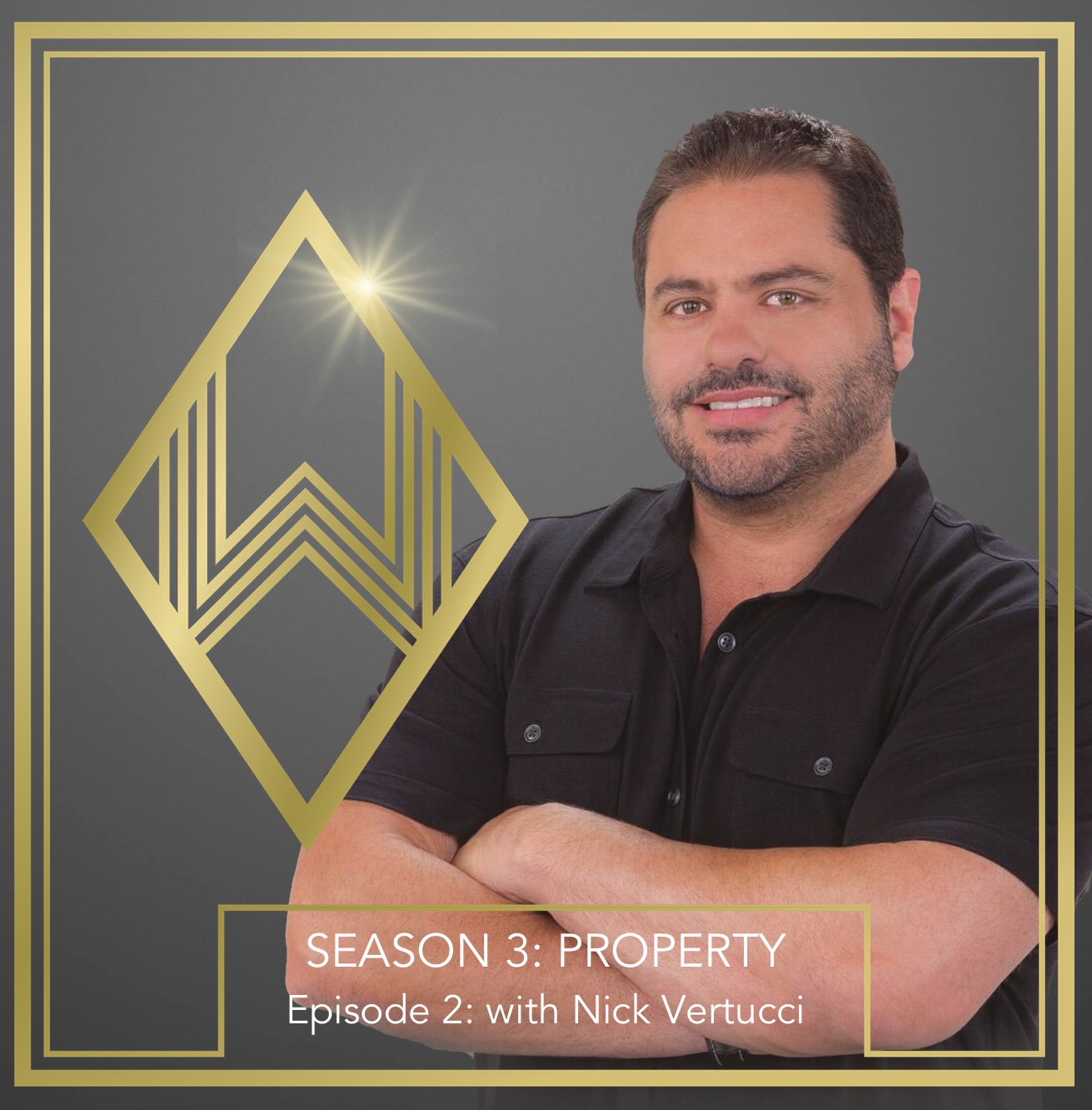Podcast: Play in new window | Download
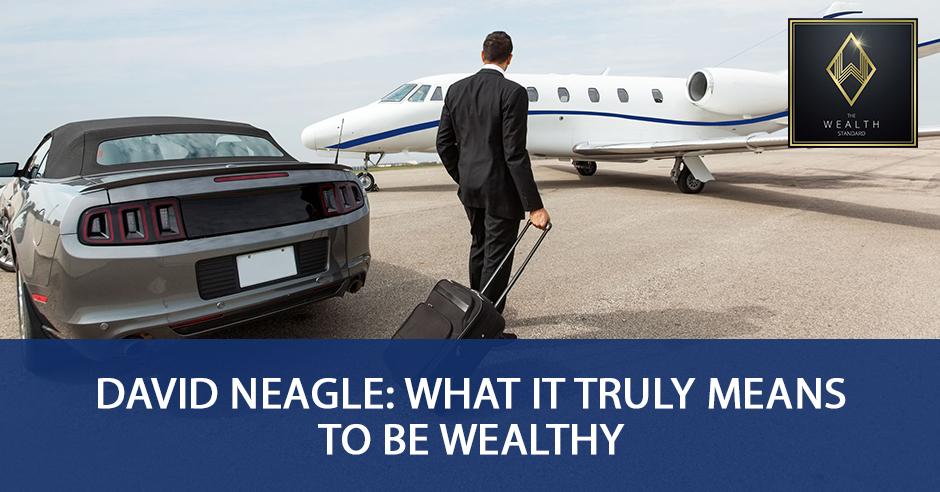
Just as we thought we are doing just fine with the bare minimum, life happens. After a near-death experience, David Neagle woke up to the realization that he has to do something with his life and make the most of it. Now, as the best-selling author of The Millions Within and is known as one of the architects of the coaching and personal growth industry itself, he has been impacting people to live their purpose and affect others as well. David shares his perception of the world and his attitude. He also talks about how we express ourselves or deal with negative situations in a productive way as he correlates everything to what we know about being wealthy.
—
Listen to the podcast here:
David Neagle: What It Truly Means To Be Wealthy
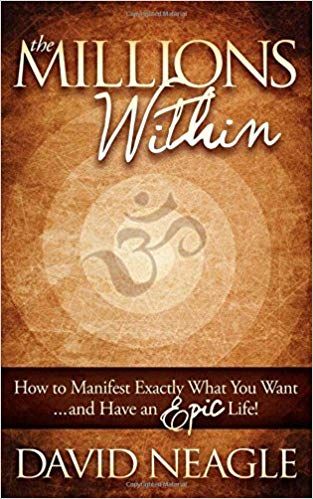
The Millions Within: How to Manifest Exactly What You Want and Have an EPIC Life!
It’s quite the honor to have my guest on. His name is David Neagle. He’s the best-selling author of The Millions Within: How to Manifest Exactly What You Want and Have an Epic Life! He has a number of things going on. The book was written a couple of years ago. We’re going to also talk about some of his presence online, the courses that he has and other resources. David, maybe give us an idea of who you are, what your background is and what you’re all about.
I’m from Chicago, Illinois. As a teenager, I was headed in the wrong direction, quit high school at seventeen, got married early, started having children young. Creating all the responsibility that goes with that without any way of being able to fulfill it. I was working two jobs. I was working at a dock six and a half days a week and driving a truck. Right after my son was born in 1989, I had a water-skiing accident. I got separated from a boat and I was sucked through the dam, broke my back. I was only one of two people that ever survived going through that dam up until that time. It was a rough day. That day woke me up to the idea that we don’t know how long we have here. I was playing small. I was not fulfilling my commitments. I didn’t know what it was to be a responsible man, husband, father. My parents split up when I was thirteen. My dad wasn’t around a whole lot. I didn’t have a whole lot of guidance.
That woke me up to the idea that if I was ever going to do something with my life, I need to stop procrastinating and start doing something now. I learned a lot of lessons from that day. As far as the story of where I was and where I’ve come to, that was the main story that changed for me that day, that I need to do something. I didn’t know what to do. I had an idea in my mind that if I’ll let this happen, something was going to break open and my life was going to change in some way, which turned out not to be true. It did cause me to start thinking differently. Once I got back to work and I was okay, I was working so much I was just exhausted. We were living in a bad neighborhood next to a drug dealer. My self-esteem was going down on a consistent basis. I was ashamed of where we were living and that we had to be exposed to that.
On a Tuesday morning in February, I had a complete emotional meltdown in the back of the trailer that I was loading on this dock. I was just praying to God, “Show me a way out. How do I get out of this? What do I need to change?” A little voice in my head said, “Change your gratitude.” I didn’t even know what an attitude was. I began to think about what is an attitude. I picked the person that owned the company that I worked for and I asked myself, “What’s the difference between him and I as far as our attitude? He’s so much further than I am and I would love to be where he is. What is the difference?” I broke it down to three main things that I noticed about myself and him as far as the difference. He must have loved what he did because he started the company in his garage and he was the largest food importer in the country at that time. He treated everybody with total respect. He would very often come through with other business people through the warehouse.
He would always stop and say hello, shake your hand, thank you for working for him, ask how your family was if he had time. He acknowledged people. I figured he also must have done a great job. That’s how he built the business. I wasn’t doing any of those three things. I hated what I did. I was angry internally so I was taking it out on other people. I didn’t hear about the quality of my work. I decided I’m going to change those three things. At that time, I was making $20,000 a year working two jobs, six and a half days a week, all the overtime I could take. I was trying to find a way to get to $40,000. I thought if I get $40,000, that will solve all of my problems. After I changed my attitude and I made this commitment, no matter what, I am going to stick to this. Thirty days later, I tripled my income. I went from $20,000 a year to $62,000 a year.
There were a couple of things out of that that was extremely significant for me. One was I knew that some way somehow, I caused that to happen. I just didn’t know how. Years later, my mentor told me I was an unconscious competent, which is fine until something changes and then you don’t know what to do. I was blown away that this kind of a change could happen this fast with relative ease. It wasn’t like I went back to school. It wasn’t like I was working harder. It was an internal shift in how I was showing up every day. That’s what made the change happen. The other thing was that I was stunned when I realized that the opportunity for that to happen was around me for two years and I couldn’t see it. Later on, I had been reading Think and Grow Rich. In the beginning, he talked about the sly disguises of opportunity. I immediately resonated with that paragraph where he said, “Sometimes opportunity shows up as fortune or temporary defeat or just being unfortunate.”
I thought, “This opportunity was around me for two years and because of my mindset, I couldn’t see it.” That caused me to start studying. I studied for seven years and then I started working with a mentor. From there, I went on to create my own business and became a multimillionaire. Nothing outside of that original attitude change changed all that much. I didn’t go back to school. I didn’t get a degree. I just kept working on myself and applying myself the best that I could at every opportunity that I had. I found out what my purpose was that I’ve wanted to teach other people how to do this. I like working with entrepreneurs, which I still do now. I’ve worked with people all over the world and continue to do so. It is my passion and my joy to wake up other people and lead them to their purpose and the freedom and the expansion of what it is that they’re here to do to affect the people that they’re meant to affect. That’s what gives me the greatest joy of all being able to do that.
The first thing I see is the perception of the world, how we view things is largely a function of the past. Opportunities are probably all around us. It can’t be seen because it’s our past perception unless we start to make changes. That’s a big thing. Napoleon Hill talked a lot about this, which is taking on a mastermind group and essentially an archetype of someone else that represents or an archetype way has characteristics, traits, attributes that are desirable to you and start to act that way. If you act the way you act, you’re just going to get what you’ve always got. It’s the perception. As you wake up every morning, how has that adjusted your perception of the world? When you wake up, how do you view the world?
I view the world as an amazing place. We’re probably at the most amazing time in history. I view the world with an incredible amount of potential that is slightly misguided at the moment. We’re in the midst of a major change. Anytime you see a lot of change occurring, you usually will see a lot of confusion simultaneous to that or parallel to that. That’s what we’re seeing right now. We’re seeing a lot of confusion in values, a lot of confusion in where we’re going as human beings, what’s important to us. I also think that there’s a lot of delusion out there that goes along with it. I’m very optimistic about what we’re doing. One of the things that keeps me optimistic is how many people are showing interest in a positive change for our world and getting involved and working on themselves and trying to make a difference, versus the way that we did it 50 years ago in the ‘60s. We had a great idea back then but I don’t know that we have the emotional tools or the psychological tools to pull it off. We made some progress but people now are starting to show a little bit different and realize, “I’ve got to change me in order to change what is a representation of me, which is the reality that I live in.”
How do you see the correlation of your perception of the world and your attitude?
I can tell you that it is so vastly different from what it was like before I went through that data. I felt very unempowered. I felt very victimized. I felt like I lived in a world where there was nothing that I could do to control my outcome or my destiny. The world that I live in now, just because of the changes that I’ve made personally, is 180 degrees different. The people that I know, that I work with, that I come in contact with are nice, friendly and they want to help. They want to make a difference. That’s not what I used to see before. I saw anger, victimization and entitlement. I know that those things are out there but it’s not part of what my experience is now. I hope I’m answering your question. It’s very different because I changed that.
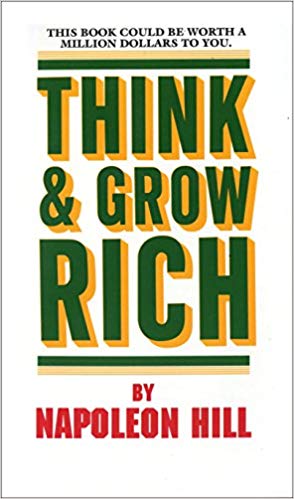
Think and Grow Rich
This goes to the relationship idea. I’ve been thinking a lot about this lately. I know you’ve spoken alongside Tony Robbins, Bob Proctor and a few others in the personal development world. Something I have learned through just study and education is the idea that having a lot of money doesn’t equate to what people think it does. People are seeking an emotion. They’re seeking a way of feeling about something and proof of that is the people that take their own life even though they have a lot of money. The correlation to attitude and to this is all money and all wealth is an exchange. When you have a lot of money it’s because you’ve affected in one way or another a lot of people. I believe attitude is that connecting piece, which I find fascinating. I never thought about it like this. It’s fascinating to think about how you come across with a perception of like, “We’re the most amazing time in the world or we’re in the shittiest period of history.” You could see it both ways and sympathize with it in a sense. The attitude and how that connects with other people based on that perception is curious. With a person in a perspective of the glass is half empty, you don’t want to be around that person or do business with them. If it’s the other way around, you do.
You’ll hear people talk about what it’s like to go visit different countries. I’ve been to a lot of different countries. I’ve had people say, “The people are rude there. They’re not nice,” and I go and have a completely different experience where the people are warm, friendly, helpful and wonderful. I don’t have that experience. The money part of it, what you’re saying is so dead-on. Every dollar that we spend or that we earn benefits the lives of other people. Money is just a tool. If I’m spending money, I’m contributing to the people that bought or own the companies of the products that I’m buying, which benefits them and their families and their kids. They can send their kids to school. If I’m earning money, I’m building a business which provides jobs and income for people’s families so that they can grow. When I first started off, I didn’t know I was going to have that experience of how much joy I’d get in contributing to the lives of other people in that way. Not just with the products and services that I deliver to the world, but the fact that I provide jobs, I’m doing something that’s meaningful in a very holistic way with everybody that I come in contact with.
There’s a correlation there more than we think. You can do something that’s not meaningful and get money from it. The idea of being wealthy or fulfilled or have that sense of emotion of achievement is because you have both, which is you’ve done something and you feel that. You also have impacted the lives of somebody else because they’ve given you a lot of money.
It’s interesting what people think about money. I remember before I was wealthy, the thought was about what I would do when I was wealthy, what I would spend money on, houses, cars and trips and stuff like that. Then you become wealthy and after you buy things for a little while, it’s not about what you’re going to buy next. You’re not coming from that place. It’s about how you’re going to serve more. For me, that’s what it is. To watch the light go on in somebody’s eyes when you make a difference for them, the psychic income that you get for that far surpasses any financial income that you could. If I wanted to stop working now, I could. I get to get up and do this every day. It’s not something I have to do. The whole attitude behind the fact that I get to get up and make a difference, I make choices in my life that allow me to do that. I get to watch other people have those breakthroughs. That to me is absolutely amazing.
It’s like the accelerator. I was observing a dinner conversation and the net lottery was a huge amount. I was just listening and observing but they were like, “We’re going to be able to do this and do this.” It’s interesting because most people think that way. If you get to that place and you have those things, you realize that it’s an emotion that you’re after, then the acceleration piece is you get to that point. From my perception of those that are wealthy, you’re on a different gear where your drive doesn’t come from having more money. It comes from having more of those feelings, which is serving and helping people.
People want to feel good. One of the problems that we have as a society is that we’re having difficulty keeping up emotionally with how fast everything is changing. The answer that we have to that is drugging people. That causes a major problem because it doesn’t allow them to grow. When we’re seeking those feelings, when we want to feel good, you mentioned about wealthy people taking their own life. I’ve seen that and we’ve also seen some very prominent people commit suicide that you would think to yourself, “They’ve got everything. They’ve got dream careers and they hanged themselves or something.” I did a podcast about Anthony Bourdain after he hung himself because he was one of my heroes. There was no other way for him to get that feeling, whatever it is that was missing in his life. There’s something to be said for finding why you’re here and having the appreciation and the gratitude for that.
We do an exercise that we do as a company and I also do it with my family. That is every day you have to say three things that you appreciate about yourself and three things that you’re grateful for in your life. The hardest part for adults is to sit around at a dinner table with a bunch of adults and say, “Tell me three things that you appreciate about yourself.” They go blank, they have a hard time with that. If you ask a five-year-old to do it, they’ll be like, “I appreciate my nose. I appreciate my coat.” They come up with things. They have no problem with it whatsoever. It’s almost like it’s taught out of us as we go through life. It’s like waiting for the other ball to drop or whatever that saying is. It’s like there’s always an air of disappointment ready to come into somebody else’s life because they don’t feel they have control over where it’s going.
It’s like you’re selfish or you’re self-centered if you appreciate yourself for something. It’s interesting, it’s like a social stigma. I don’t know what it is. Maybe it’s the school that teaches. It affects a lot of people because I know a lot of people like that, even myself to an extent.
It starts off with the idea that part of our value systems is to put other people first. We’re never taught a healthy balance of putting ourselves first, taking care of ourselves, giving ourselves what it is that we need first and making that okay without being shamed for it. We’re not born with shame and guilt but it is used as a correction tool from the moment we’re born almost and then all through life. Once you pass that on to somebody, we do it ourselves. If my parents shamed and guilted me for my behavior, I don’t need them to continue doing it. I’ll do it for the rest of my life unless I correct that. If I’m doing something that would be outside of what was acceptable for them, I’ll immediately go into shame or guilt and automatically correct my behavior to go back to stay in that pattern. That’s where it has to start to change. Plus, the other thing is this. We’re the only form of life that adjusts our behavior for the appreciation of other forms of life. It happens in nature. The way that we were trained to do that is by limiting the way we can express ourselves.
I’ll do seminars and I’ll ask by a show of hands, “How many of you grew up in a household where it was not okay for you to express your anger?” 90% of the room will raise their hand. We were taught to express ourselves in a way that our parents were comfortable with, but not necessarily based on what we were going through emotionally or how we were feeling. In order to set ourselves free, we have to get back to that baseline of who are we and accepting ourselves for who we are and where we are. Not to say that we can’t get better, but not shaming ourselves for what we haven’t done yet and learning how to express ourselves authentically. Anything that would be considered a negative emotion, like a lot of people, consider anger a negative emotion. I suppose that it is when it’s expressed in a negative way. We’re human beings. When we do have those emotions, how do we express it in a positive way so that we can get it out of our body instead of suppressing it, then at some point blowing up where it does get expressed in a negative way?
We do tend to deal with it. It may seem so subtle on the surface where there’s this little issue and it’s like, “I’m not going to deal with it.” Even though we don’t think that it affects us, it does and it stays. Then the next time something happens, that it’s a little bit more and then a little bit more. That compounds out of control. I’ve thought about a lot of this about how we express ourselves or how we deal with especially negative situations in a productive way. I don’t know if I have the answer to it. I’ve been aware of it and I’ve thought through and I’ve had difficult conversations or had to have difficult conversations. What do I do in order to not subconsciously come across as a jerk?

Wealth: The natural progression is that whatever the dysfunction in life is, it’s going to continue to get worse until we have one of those radical wakeup call moments.
Part of it is evaluating how much a person has the ability to accept responsibility for themselves and talking to them based on that level of where they are. If you’re dealing with somebody who is projecting that they’re victims and that they’re entitled. You come like, “No, in order for you to change your life, you’ve got to accept responsibility.” They’re not going to be able to hear you. We have to get back to a place where we were teaching what responsibility is in society and holding people accountable for that. The difficulty that we have is that’s great for kids. A kid’s mind is not programmed yet to blame other people for their actions or where they are in life. When you’re teaching children, all they have to do is make up their minds. That’s the truth. That’s the direction that they’re going to go. They’re relatively okay with that with some guidance. Adults have to change their mind. You have to get them to accept a different idea about how life is based on what the problems are that they’re experiencing and where do they ultimately want to go. The truth of the matter is some people just don’t want to change it.
Also, there are layers upon layers, years upon years that is on top of what the core issue is. It’s typically what’s manifesting those core issues. You’re right, it’s dealing with that. In adults, especially, it’s difficult. Also one thing in relation to what you said, which is this understanding where we put others first before ourselves. The connection that I made years ago and I would say I still have issues with it, which is the best way to take care of others, is to first take care of yourself. If you don’t do that, then you’re going to show up less than what you could for others. You’re hurting others regardless of whether you put them first or not. If you put yourself first, that at least puts you in the optimal position to be of most benefit to others. These are all attitudes. It’s interesting it still seems very counterintuitive to what the overarching universal belief is. I see signs of it changing and adjusting. It’s years, decades and repetition of what’s held as a social belief or an American belief or whatever. It’s going to take a lot of work. It seems from your perspective, I would agree with it that there’s a momentum there.
I was listening to Oprah in an interview one time a couple of years ago. They were talking to her about racism and where we are as a society as far as racism. It was an interesting interview. There was nothing new being said. The question was asked, “What do we do with people that are above 55 years old? They were raised in a different generation with different beliefs. How do we change their minds?” Oprah’s response startled me when I first heard it. She said, “They just have to die.” At first, I thought to myself, “That’s crazy.” Then I was thinking from a realistic perspective, there are some generational beliefs that people are not going to change.
You can tell a person that racism is wrong and it’s ignorant and it’s passed down from one generation. You can bring all the logical argument to someone. If they don’t want to change the belief, they’re not going to change it. They’ll just shut up their mouth but they won’t necessarily change it. That’s what Oprah was trying to say. If you look at other things, it will pass away as those generations of people with beliefs as they transition. New generations of people come up with a more loving mindset or a liberal mindset or however it is that you want to put it. People are becoming more aware of the truth every day. It starts to become more obvious. We’ve pushed the button so far in one direction and there’s too much information that is readily available at everybody’s fingertips. It becomes difficult for the people to try to carry the light from one generation to another to be able to continue to do so.
We’ve been talking about how individuals suppress. Once it’s a group or a collective that’s suppressing something, it’s even stronger. Going to your story and your awakening when you went through that dam, catastrophic events oftentimes disrupt that mindset. Look at 9/11 or you look at the different hurricanes and natural disasters, they tend to bring people together. In those very disruptive environments I would say is where you have this inkling of people are putting aside any differences, political, social and race to help one another. Then a month goes by and it’s back to normal. It’s interesting to see how those types of disrupted events break down those social barriers that are evident.
We do a program that’s called Date with Your Darkside. The whole idea behind it is that if you have something in your life that is showing up dysfunctional or a problem that just keeps persisting. My belief is that the universe is always trying to correct us individually, trying to get us back on track with what our purpose is. We don’t readily see all of those signs as we’re going through life. The natural progression is that whatever the dysfunction is, it’s going to continue to get worse until we have one of those radical wakeup call moments, whether it’s the trauma in our own life or we’re seeing it as a society. I’ve told people you don’t have to get to the point where you have a near-death experience to change if you can recognize what the signs are ahead of time. Then unravel or unpack what the patterns and the roles are that you’ve taken on from your parents that are continuing to cause those problems. You can proactively change and then learn the tools and the skill sets that you need in order to literally take your life down a totally different path and have a completely different result.
We’ve been doing that for a long time with people. The results are absolutely astounding that they get from that. For me, it came out of the idea of, “What happened in my life that caused me to change and what have I watched thousands of people do to precipitate change in their life? What caused that? What were the precursors that they experienced that said, “This has got to change now. Something different has to happen.” It doesn’t have to be that somebody dies or gets hurt. It could be something proactive, following something that inspires us, a desire that we have, an inspirational person or book or art or something like that. There are a lot of things in this world that are pointing in the right direction, we just have to wake up to what they are.
What does this have to do with being wealthy? This is a topic of your book and something I think a lot about. Let me first address this notion of awareness. That’s the keyword that you brought up is when these disruptive events happen, you have a new awareness. Your perception has changed. I was having a conversation with somebody and they made an observation about me, which was fascinating. I’m still trying to process it. My parents were both teachers in the same school system that I went to school in. My middle brother and I, we realized early on that we couldn’t get away with anything. The discipline level of normal teacher-student was enhanced because if we did something bad, they went to our parents. It was an extra layer.
You’re always trying to make sure that things look good. Whether it’s the right connection or not, I just found it fascinating that we have all these experiences in the past. It’s everybody. It’s not just me, it’s everyone, where we’ve had certain experiences that we put meaning on and we’ve just continued to grow and enhance whatever that is until it exists now. It’s not like everybody was watching me then. We may have gotten in trouble or whatever. It doesn’t apply or has meaning if you’re aware of and you know how to process it, which is a whole other set of things when you approach the dark side, as you put it with your event. When you show up in life, the value you create to the world is represented in a couple of ways. One of the ways is with wealth, with money which is, “Here’s what you’ve done for the world.” If you don’t have a lot of money, you can be a victim about it and say, “It’s because this didn’t happen or this person is this way, this person is that way.” If you take stewardship and responsibility for it, it’s becoming aware that and then figuring out how to show up different, how to change your attitude and control what you can control. What does any of this have to do with being wealthy or achieving what we define as wealth?
What I believe the way that this is connected is that money itself is very interesting when you take into consideration. If everybody was aware of how to earn whatever amount of money they needed whenever they needed it, which is my definition of wealth. It’s not stacking up money in the bank or in a mattress or whatever. Not that investing or saving is a bad thing. It’s a good thing, but that doesn’t define wealth. Wealth is your ability to bring that resource in. If everybody was aware of how to do that beyond working a job, understanding how money moves and how to bring it into their life then they become uncontrollable. It is one of the ways that society still can control the masses because if they are dependent upon everybody else for the money, then they have to conform to everything that is required in order for them to earn money.

Wealth: Wealth is a mindset; it’s not something that you achieve. It’s not this end result. It’s a way of being.
There are one or two reasons that people look at becoming wealthy. One is so that they don’t ever have to worry about money again, which is a negative viewpoint. That’s built out of fear. The other one is, “I am born to be a success. I have a purpose. It is going to require a lot of money for the fulfillment of that purpose and that purpose is going to benefit a lot of people and money is going to have a role in that.” In our website, we have a free download that’s called You Were Born to be a Success. It starts people off in that direction. It’s like turning the corner for that individual in their life. The key is that if we come from this place of, “I don’t have to worry about money because I’ve mastered my ability to bring finances into my life,” you totally change the direction and the purpose and the capacity for a person to expand their life because they’re no longer fixated on, “I’ve got to spend this much time or trading my time for money, working in a job that I don’t like, which makes people unhappy. Working with people I don’t like.” You should do what you love with people that you love and master being able to bring money in your life so that it’s not an issue. Everybody can do it.
My belief is that everybody on the planet has the same amount of money. They’re just either ignorant to that, meaning that they don’t know that that’s the truth or that they don’t want to change to be able to do the things that are required to bring it in. Earning a lot of money is not difficult. There are homeless people that understand that more than there are people that work that understand that. Homeless people are believably resourceful. There are people that walk around free, they talk about all the reasons why they can’t do something and we have people in prisons that are able to get drugs, pornography, cigarettes, all kinds of contraband and they’re in a 9×11 cell, 23 hours a day. How is it that they’re able to be more resourceful than a person who’s free? It’s the change in your mind that binds you. If you think about it in those comparisons.
You have a person that says, “I can’t do this because I don’t have the money.” The problem is that they don’t have the urgency. If you change the urgency in a person’s life in order to get the money, everything changes. If somebody said to you, “If you don’t come up with $10,000 in the next seven days, your kid will lose his life.” That I guarantee, the person will find $10,000 in seven days. That will be the same person that won’t go out and buy a self-help book because they say that they can’t afford it. Or they’ll be late on their payments because they literally stop with the imagination in their mind or the story in their mind that they can’t do it, it can’t be done or they have toleration as to what’s acceptable and they don’t raise their standards in their lives. But if you change the circumstances, they’re able to do it. They’ll break through whatever barrier that they have in order to make something happen.
The word “can,” what an amazingly controlling word that is, which is totally false. You’re hitting on things that just resonates so well. That’s probably what you meant with the title of your book, The Millions Within. Humankind shares very similar attributes as far as who we are, maybe not the physical environment in which we live but who we are and our ability to create and our ability to think. Going back to what we talked about, which is John Locke who lived in a time where there wasn’t electricity, there wasn’t plumbing, where life was very at a rudimentary level. He saw what a human being could create with the right mindset, with the right environment and so forth. As you alluded to in the beginning, we have more opportunity now than ever. Also, you could see a perspective where people think it’s all going to end. It’s all going to end.
What we’ve been talking about here, wealth to me is a mindset and it’s not something that you achieve. It’s not this end result. It’s a way of being. You don’t have to have a lot of money in the bank to think and believe that way. I believe that true wealth is going to come about by first believing and thinking that way, which will create a specific attitude which will then bring you around the right people and get you away from the wrong people. That right there altogether is that state that people are seeking. It’s not a state that you achieve, it’s a state that you are working on all the time.
It is a state, it is a way of being. It is how you show up every day. Anybody can do it. It starts with this. If you’re willing to take responsibility for everything that’s in your life, you take your power back, which allows you to change your perception and see what you couldn’t previously see before. All the opportunities, everything that you need is here for everybody. It’s not to pick or choose. You don’t see the worry. You don’t see the fear. You don’t see the dysfunction anywhere in nature unless human beings get involved. Nature just flows with life and intelligence. It knows exactly what to do. Think about a beaver building a dam. They don’t go to building dams school as little beavers. That’s instinctual knowledge that they have. It’s the same with birds building a nest. Those are very intricate things if you’ve ever looked at one up-close. How did they know how to do that? We have the same guidance inside of ourselves. We’ve got to stop following the dysfunctional stories that we’ve been told that are not based on any truth and start following what is true. The truth is you have to study a little bit to get to those things. If you’re willing to do that, you can change your life for the better in a very short period of time.
David, this has been enlightening for me. This has helped me connect a few things. I appreciate that from a personal level. We’ve been talking about all of your elements of this. We brought it together well. Thank you so much for helping us do that. I know you have not just the book but there are a lot of other resources that you have that speak to practical ways of implementing some of what we’ve been talking about. Would you mind speaking about that?
All anybody has to do is go to our website, DavidNeagle.com. There is a free download there called You Were Born To Be A Success. There are also a lot of other resources. Our events are all listed on the website if you want to come to participate with us. You could give one of our coaches a call. That information is on the website and they’ll help you work through any problem that you’re having and help you with what is the next step from there.
Are you active on social media?
Yes, we’re on absolutely everything and always communicating there.
David, we’re going to have to do a follow up to this. Thank you so much for sharing your wisdom and your experiences with us. We appreciate it. I’m sure we’ll touch base and talk soon.
Thanks so much for having me. I appreciate it.
Important Links:
About David Neagle
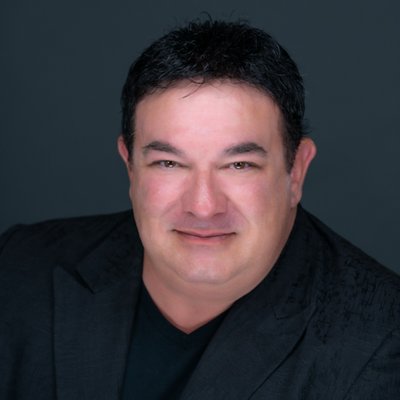
In September of 1989, what was supposed to be a rare relaxing day with family cruising down the Illinois River in a roomy boat, quickly turned into a nightmare.
David Neagle was pulled deep into the gates of a dam that shredded his flesh, broke his back, and nearly drowned him. No one expected him to survive the accident, and rescue workers even told his family he was already dead. (Entire boats had been sucked into this same dam, without survivors.)
What happened instead is that David, a high-school dropout and dock worker, awakened to the potential previously untapped within him. He made a decision that day to begin the journey responsible for changing his entire life, and now the lives of thousands of others.
David Neagle knows how to help you achieve whatever dream your heart desires – no matter where you’re starting from.
After his brush with death, David began to study his own potential. In the 12 months following his accident – despite being unable to walk for more than a month – he tripled his income. By December of 2000, David had expanded to become an executive corporate manager, a stock investor, and a business owner.
Over the years, David continually sought new mentors with each new level of success he attained. He began to study every great person in history. But it wasn’t until David began studying “The Science of Getting Rich” by Wallace D. Wattles, that he fully understood the transformation he’d undergone. Wattles’ book uncovered the exact change in David’s thinking and in his attitude that had gotten the ball rolling to create his unstoppable success.
Today, David Neagle is the best selling author of The Millions Within and is known as one of the architects of the coaching and personal growth industry itself, having worked alongside other well-known mentors like Bob Proctor, Marianne Morrisey, Tony Robbins and the like for decades.
Love the show? Subscribe, rate, review, and share!
Join The Wealth Standard community today:
